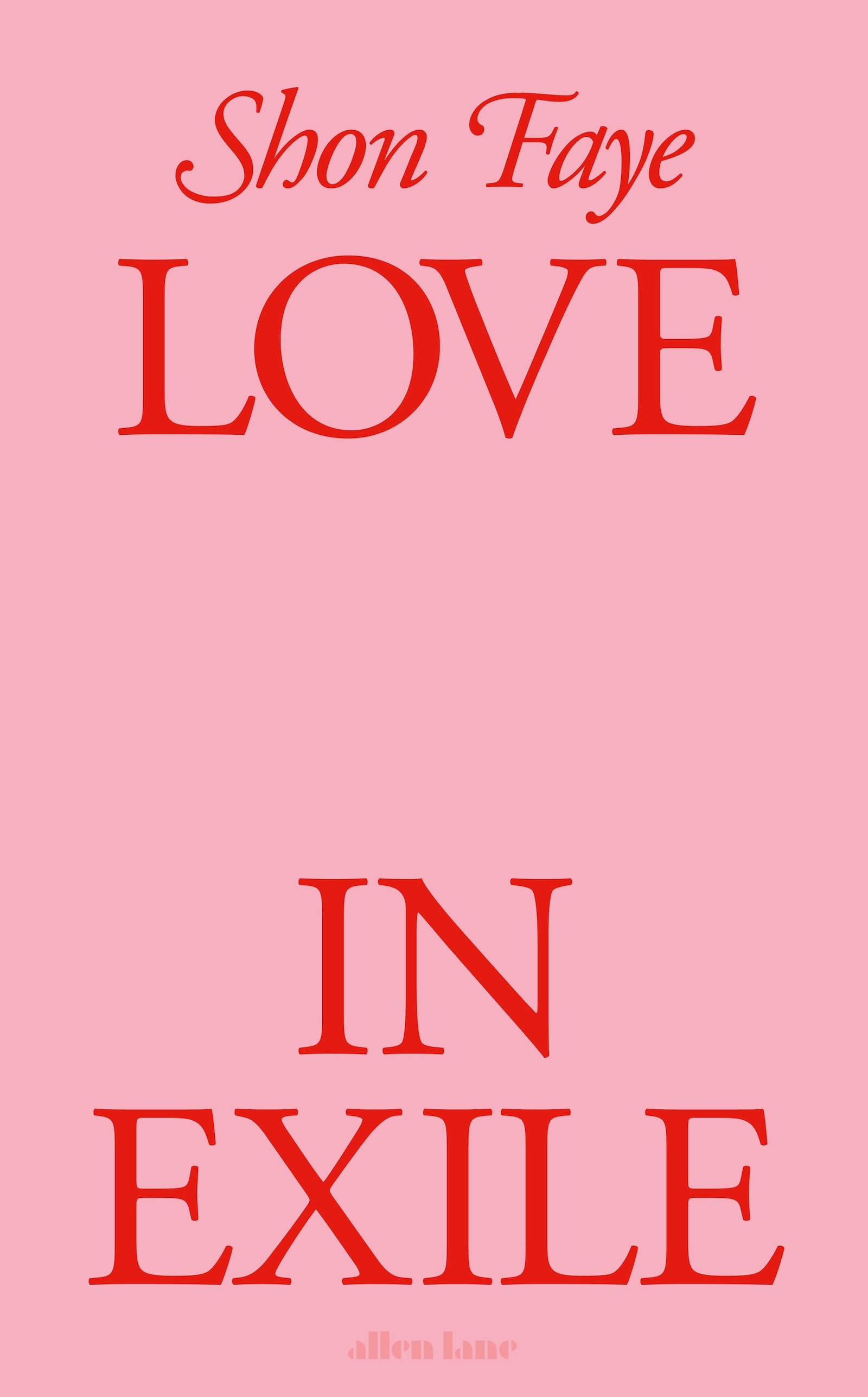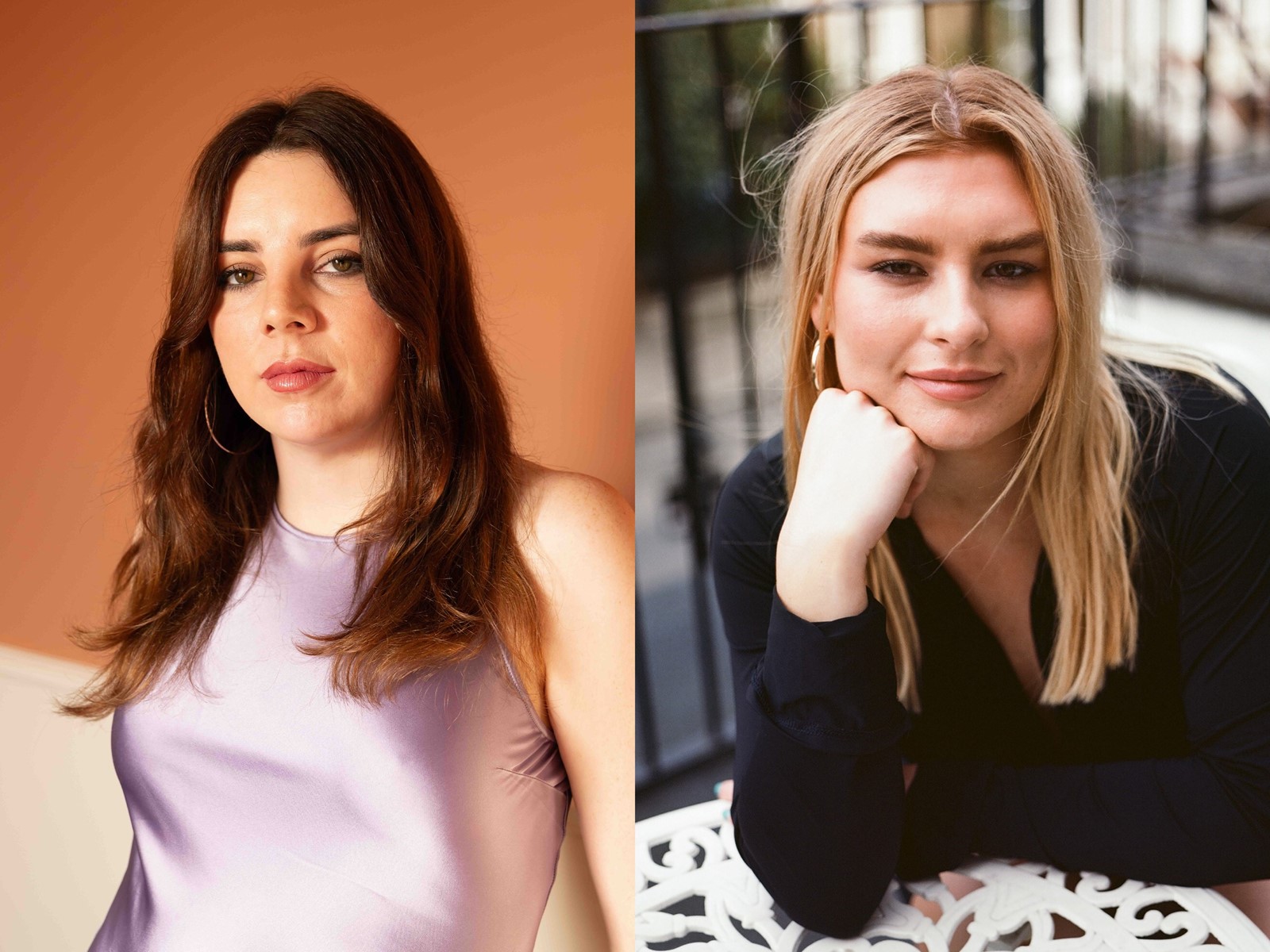When Shon Faye first wrote about heartbreak, she didn’t expect anyone to relate to it. “I definitely assumed that because of my life experience being trans, no one was going to read it. But that wasn’t the reaction I got at all.” From her Vogue advice column, Dear Shon, to her Substack Idle Thoughts, Faye has written incisively about love, friendship and mental health in ways that feel so painfully accurate that you sometimes feel forced to look away. The same can be said, even more so, for her second non-fiction book, Love in Exile.
Part memoir, part political education, Love in Exile explores Faye’s honest sentiments about feeling lonely and unlovable, her addiction to love and alcohol, and where these feelings stem from. Intertwined with rich and thoroughly researched chapters about other aspects of love, such as obligatory love through motherhood, religious love, friendship, forgiveness, and so much more.
A lot of writers have inspired Faye to write about love after penning her first book, the brilliant and necessary The Transgender Issue: An Argument for Justice, in 2021, but one particular influence was her friend, Vogue sex columnist for and author of the emotive and raw, Notes On Heartbreak, Annie Lord. “We both knew about each other as writers, but then we met on a night out in Peckham through our friend Moya,” explains Faye. “Yeah, we just started meeting up after that, didn’t we?” Lord says, smiling at Faye.
Below, Shon Faye and Annie Lord discuss the difficulties of writing about love and sex publicly, resisting the urge to lie and pursuing a type of love through writing.

Shon Faye: I did an interview about my book the other day and someone asked about my influences, and I said that you were one of them, Annie. Through your column and Notes on Heartbreak, I feel like you gave me permission to bear my soul but in a way that wasn’t – don’t take this the wrong way – always flattering. I think I felt so much pressure to be the most feminist version of myself and actually, that isn’t the core, especially when you write about romantic love and heartbreak. Some parts of it are humiliating or shameful, and I feel like you don’t have a filter around that in a way that really left an impression on me before we were even friends. Do you feel like it’s natural that you don’t have a filter, and that comes out in your writing?
Annie Lord: I’m quite an oversharer in general. I do that thing of speeding to bond with people by just saying something embarrassing about myself to try and cheat closeness. With writing, I don’t feel uncomfortable saying stuff that I feel like other people would feel uncomfortable about. However, regarding being flawed in writing, I noticed how empathetic you are to the guys in Love In Exile and how you’re looking at yourself and interrogating that. That makes it so much more interesting because, in my book, I didn’t want it to be about dating a guy that was a dick because that’s not interesting. Whereas, if it’s a breakup and a bit of a mess, it’s more interesting.
SF: I can relate to that. At the beginning of writing my book, I definitely had a bit of a fantasy, if I’m being honest – and obviously, this was three and a half years ago – that I would tell the most wronged woman version of my relationships and my exes would read it and feel ashamed. But as I came to write it, firstly, seeing the most bitter version of yourself on the page is not a great vibe, and secondly, as you said, I actually found it less interesting.
I had to think about the ethics of writing about my love life because when you write about your love life, you have to write about the other people involved. I realised I wanted to talk about real experiences, but I didn’t want to make it a weapon that could potentially hurt anyone in my past. Being forced to go through legal reads to ensure you’ve represented people fairly made the process better because it made me focus much more on what was going on with me and not so much on the other people. But for years in your column, you had to write about your life, men and friends. I remember we spoke about the ethics of your work the very first time I met you in a cab. Do you think it is inherently unethical to mine your love life?
“Do you think it is inherently unethical to mine your love life?” – Shon Faye
“I think you’re allowed to tell your own story, and it’s unfortunate that it involves putting other people in it” – Annie Lord
AL: I think you’re allowed to tell your own story, and it’s unfortunate that it involves putting other people in it. I’m an oversharer, but other people aren’t. For example, my ex, who I mentioned in my book, is very private, which was a bit awkward. I felt kind of bad about that, but not enough that I didn’t feel like writing about heartbreak or helping people who have been through it.
SF: I don’t think I was thinking about helping people when I wrote my book. Maybe that’s a bad thing. With my first book, The Transgender Issue, I was expecting it to change people’s opinions. With a personal memoir, I was much more concerned with what the truth was. I don’t know if you find this, but my experience with writing about love and especially about sex is actually that it’s hard to be honest. I would sometimes write stuff on the page, and I would explain why I did what I did, and I realised that before I’d even thought about it, I was lying. There is a part of my book, in a chapter about sex, where I mention that it’s hard for me to write about this topic because I’m afraid of the repercussions of being too honest about sex. Do you ever find yourself lying in your column?
AL: I probably have lied without realising I’ve lied. But in your book, you write about how self-love is a discipline and really honing your craft, but also how, in the past, you struggled with thinking writing or a book would redeem you in some way and make you lovable. I’ve noticed that so much with myself, where I’ve thought, “Oh, once I’ve written my dream book, I’m going to be so happy.” And then it happens, and then nothing really changes, and you just adjust. I feel like I’m doing it again now, and I’m trying to remind myself that that won’t happen, but it’s so hard not to emphasise it so much. I feel like I’ve been trying to think of writing as more of an ongoing craft that you do because you’re good at it and not focus on the outcome of it, but it’s really hard. I feel like it must be difficult for you because The Transgender Issue was so huge, and this will be so huge, too.
SF: Yeah, the fantasy of success can keep one motivated. Especially with a book, because it’s such a long process from start to finish. I thought when I was in therapy a few years ago that I needed to be completely rid of all my cravings to be loved and externally validated. Obviously, I’m happier and healthier when not looking for external validation. But I don’t think I’ll ever completely get rid of the craving for it. Maybe one day I will, but I don’t think so. In dating, it’s bad. The more I want attention and validation, the more I seem to be attracted to unhealthy dynamics with people. I’ve had the healthiest dynamics when I could have taken it or left it. But with writing, I’m not sure that’s true. Writing is much healthier than other forms of external validation, but I think anyone who writes a book is asking to be loved.
AL: You know people who write and don’t show anyone? I wouldn’t do that. [Laughs]. I really enjoy writing, but I definitely do it because I want to feel loved. It’s almost like the need to feel love coaxes me into doing something I find quite fulfilling.
“Clearly, both of us spend most of our time pursuing a kind of love through writing that is so different from romantic love. And if anything, it is probably making our dating lives harder, not easier” – Shon Faye
SF: Clearly, both of us spend most of our time pursuing a kind of love through writing that is so different from romantic love. And if anything, it is probably making our dating lives harder, not easier.
Sometimes, when I have those moments where I’m like, “Why have I been single for so long?” or “Why can’t I find someone to experience romantic love with?”, I wonder if I actually want it, because almost everything I do points the other way. Maybe it’s easier for me to focus on the romantic areas of my life and what’s going on there rather than admit that writing is much more important to me.
AL: Yeah, I’ve noticed in the last year or so that I probably could have had [romantic love] and pushed it away. It actually makes me feel better because rather than being like, “Why is it never me?” you realise the part you played in it. But, yeah, writing is more important to me than romantic love. I would choose it over other things every time, but I don’t know if I’d be aware that I was doing that.
SF: Sheena Patel, the novelist, recently told me that you need the libidinal energy to write, which is so true. I started writing The Transgender Issue when I was heartbroken, and then I came up with the idea for Love In Exile, and I was single the whole time I wrote the book. Then, I wrote that final bit of the book when I was a little bit heartbroken again. I realised I’d never written a book in a secure, committed relationship. Those have been some of my least productive times. It made me think that maybe what she’s saying is true. Obviously, there are people in relationships who write, especially women. But I’ve used the longing and yearning I want out of my dating life as fuel that I pour back into my work. Or maybe this is just a comforting story to tell myself that I wouldn’t be as productive.
AL: I find it so comforting to have something that you love doing that doesn’t rely on anything or anyone else but yourself. When you feel out of control, say with dating, I can pour all my energy into it [writing], and I will get something back from it, which I think is so lovely.
Love in Exile by Shon Faye is published by Allen Lane, and is out now.
